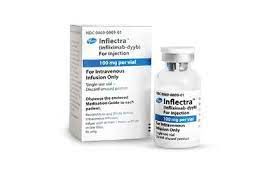- Bone Health
- Immunology
- Hematology
- Respiratory
- Dermatology
- Diabetes
- Gastroenterology
- Neurology
- Oncology
- Ophthalmology
- Rare Disease
- Rheumatology
Study: Data for Cross-Switching of Biosimilars Are Scarce but Supportive
Investigators said more evidence would help to convince clinicians of the safety of switching between biosimilar products.
Biosimilars are considered clinically equivalent to the biologic brand drugs they reference, but how about their equivalence, or lack thereof, to other biosimilars of the same brand drugs?
A group of researchers set out to answer that question with an examination of the clinical trials literature on cross comparisons of biosimilars. They noted that the FDA generally is concerned only with whether the biosimilars it approves are equivalent to reference products but not whether biosimilars are equivalent to one another. That equivalence is implied, but the FDA does not issue approvals stating that expressly.
“Similarity among biosimilars of a reference product is not a regulatory agency concern and therefore is unlikely to be investigated in randomized controlled trials in the foreseeable future,” they wrote.
Nevertheless, they noted providers and other clinicians would feel more comfortable having evidence or guidelines in support of switches from one biosimilar to another for the same drug type, such as trastuzumab, for which 5 biosimilars have been approved in the United States.
In their review, they concluded from the available evidence that biosimilars are essentially equivalent to one another.
“Comparative studies of biosimilars of the same reference product are not mandated, since the comprehensive biosimilarity exercises that each proposed biosimilar must undergo before regulatory approval is granted suggests that establishing clinical equivalence between the biosimilars ought to be achievable using educated inductive reasoning complemented by robust pharmacovigilance systems,” authors of the study wrote.
“This is supported by the emerging real-world evidence for switching between biosimilars, with no unexpected findings or concerns being raised from the initial data from cross-switching studies published thus far,” they concluded.
They cited numerous challenges to providers being able to accept cross-switches between biosimilars as producing no unwanted effects that would not accrue from remaining on a biosimilar and not making a switch.
- Regulatory authorities don’t require that biosimilars be compared with one another in clinical trials.
- There is a scarcity of clinical data supporting cross-switching between biosimilars.
- Abbreviated approvals of biosimilars could make cross-switching appear more risky than it is.
- Cross-switching can occur under many different scenarios.
- Professional medical organizations largely have yet to issue guidance on cross-switching.
“Overall, the majority of evidence suggests that switching from a reference drug to a biosimilar, or between biosimilars, is not associated with increased immunogenicity, an escalated or clinically meaningful safety risk, or any appreciable loss of effectiveness,” the authors said.
Switches can occur in multiple ways: from the reference drug to a biosimilar, or via a reverse switch from a biosimilar to a reference product, or by a cross switch between biosimilars, or by multiple switches either between reference drugs and biosimilars or between biosimilars.
The authors provided examples of ex vivo immunogenicity studies that had a bearing on cross-switching. Immunogenicity is defined as the immune system’s response to the presence of a biologic in the body. Higher immunogenicity with a replacement or “switched” drug is a concern because it can reduce the effectiveness of the new biologic.
In a study cited by the authors, serum samples were collected from patients with inflammatory bowel disease who received infliximab reference product or 1 of 2 biosimilars: CT-P13 or SB2. Analysis of immunogenicity from these samples demonstrated “immunogenic similarity,” they said.
“This aspect of the study highlighted the futility of biosimilar cross-switching among infliximab biosimilars in the event of an immune response to (reference product) or an infliximab biosimilar,” they noted. This is because the same immune response or level of immunogenicity could be expected from the biosimilar as well.
In a retrospective study, investigators tested serum samples from adults with Crohn disease and ulcerative colitis. Assays to assess immunogenic cross-reactivity “revealed that patients’ antibodies recognized [reference infliximab] and infliximab biosimilars CT-P13 and SB2 equivalently,” the authors wrote. “The uniformity…suggests that cross-switching between CT-P13 and SB2 may not result in divergent immunogenicity.”
In an in vivo study of patients with chronic plaque psoriasis, safety and efficacy of cross-switching between CT-P13 and SB2 was evaluated. Investigators said Psoriasis Area and Severity Index scores taken at various intervals “did not change significantly” and “cross-switching in these patients was considered safe and effective.”
Gaps in Knowledge
Current systems used to develop and approve biosimilars leave many gaps that could be plugged to improve confidence in these agents and satisfy clinical needs for more data, the authors wrote.
- Comparisons of biosimilars are complicated by “heterogeneous single-switch study designs.”
- Evolving medical scenarios in clinical practice are exposing evidence gaps.
- Less long-term evidence exists for biosimilars than reference products.
- Antidrug antibody development (immunogenicity) can take time to spot.
The investigators said one problem is that many surveillance studies are planned but never initiated or completed. They also stated that the nocebo effect—outcomes influenced by patients’ own levels of confidence—is also a factor of concern for cross-switching success.
“In the absence of clinical trial data, clinicians must attempt to objectively evaluate the emerging real-world cross-switching evidence within the context of the science of biosimilarity,” they said.
Reference
Mysler E, Azevedo EF, Danese S, et al. Biosimilar-to-biosimilar switching: What is the rationale and current experience? 2021;81(16):1859-1879. doi: 10.1007/s40265-021-01610-1
Newsletter
Where clinical, regulatory, and economic perspectives converge—sign up for Center for Biosimilars® emails to get expert insights on emerging treatment paradigms, biosimilar policy, and real-world outcomes that shape patient care.


